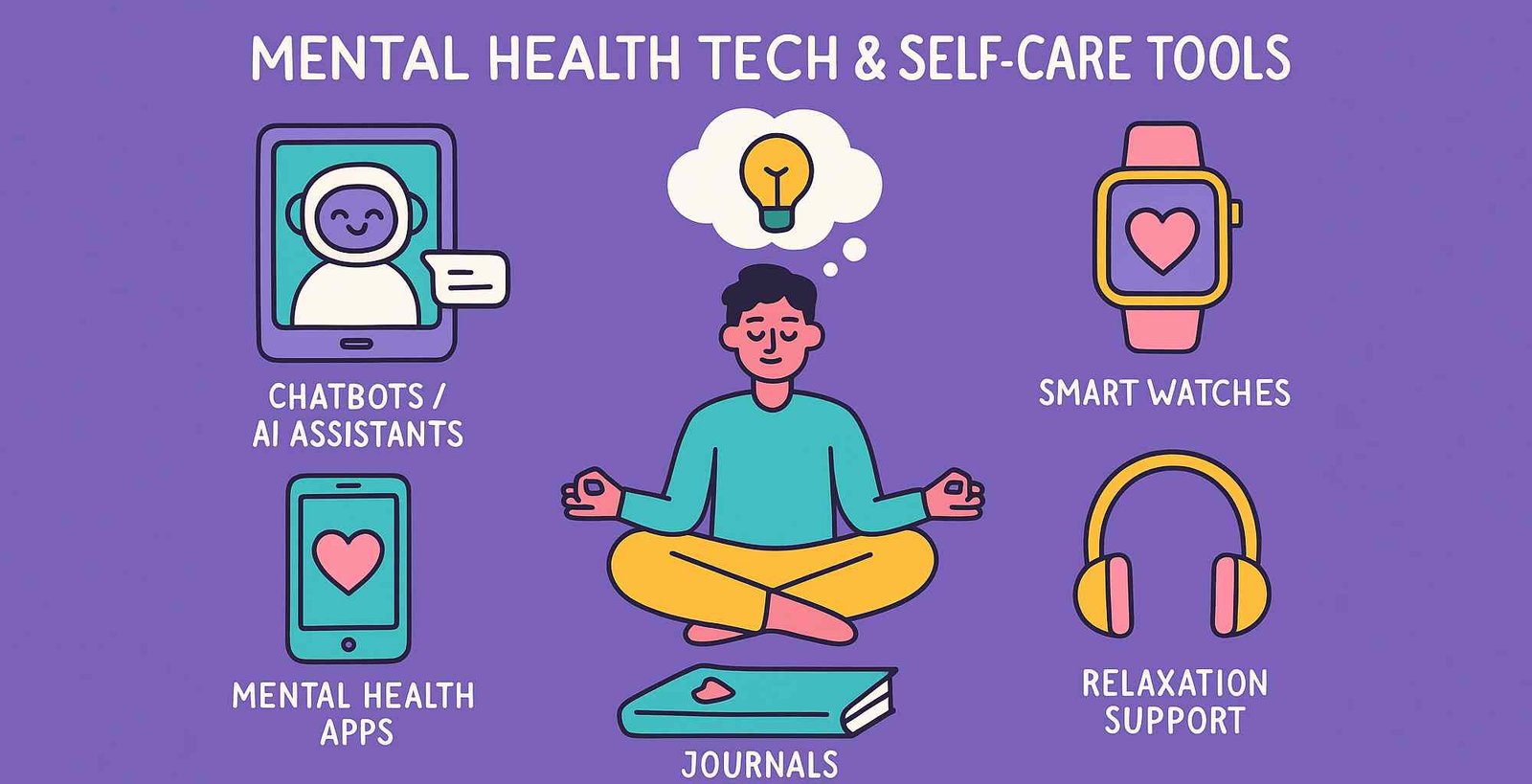Mental Health Tech & Self-Care Tools: How Technology is Redefining Well-Being in 2025
In the fast-paced digital era, where constant notifications, remote work challenges, and online social pressures dominate daily life, mental health has emerged as one of the most important aspects of overall well-being. Fortunately, technology isn’t just contributing to stress—it’s also providing solutions. From AI-powered mindfulness apps to smart wearables that track mood and stress levels, mental health technology is transforming how we approach self-care in 2025.
1. AI-Powered Mindfulness & Therapy Apps
Modern apps are going beyond guided meditation. AI-driven platforms now offer personalized therapy sessions, chatbots for real-time emotional support, and mood-based meditation recommendations. Apps like Woebot, Calm, and Headspace are integrating adaptive learning to better tailor experiences.
2. Wearables for Emotional Awareness
Smartwatches and fitness trackers are now capable of detecting stress levels, monitoring heart rate variability, and even predicting anxiety episodes. Devices like Fitbit Sense and Apple Watch offer breathing reminders, mindfulness prompts, and detailed emotional health insights.
3. Virtual Reality (VR) for Mental Wellness
VR technology is being used in therapeutic settings to treat anxiety, PTSD, and phobias. Immersive experiences allow patients to practice exposure therapy in safe, controlled environments. VR meditation apps also help users escape digital overwhelm by simulating calming natural landscapes.
4. Self-Care Bots and Daily Check-ins
AI-powered self-care companions remind users to take breaks, hydrate, or practice breathing exercises. Daily mental check-in tools help individuals track mood patterns, making it easier to detect early warning signs of burnout or depression.
5. Digital Communities & Peer Support Platforms
Online platforms like 7 Cups and Wisdo are fostering peer-to-peer support, connecting people with others experiencing similar challenges. These safe digital spaces create a sense of belonging and reduce isolation.
6. Privacy and Ethical Considerations
While these tools provide immense value, concerns about data privacy and ethical usage of personal emotional data remain critical. Users must ensure that apps comply with health data protection standards and offer transparency in how data is used.
Final Thoughts
In 2025, mental health tech is not about replacing therapists or human connection—it’s about enhancing access, awareness, and self-care. With the right balance of technology and mindful use, these innovations can empower individuals to take control of their mental well-being in ways that were unimaginable just a decade ago.
What do you think? Would you try an AI-powered self-care assistant, or do you prefer traditional methods for mental wellness?



